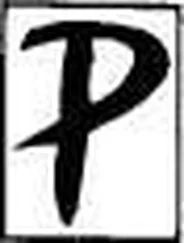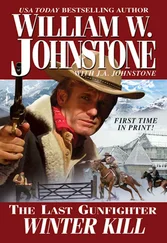William Johnstone - A Good Day to Die
Здесь есть возможность читать онлайн «William Johnstone - A Good Day to Die» весь текст электронной книги совершенно бесплатно (целиком полную версию без сокращений). В некоторых случаях можно слушать аудио, скачать через торрент в формате fb2 и присутствует краткое содержание. Год выпуска: 2012, Издательство: Kensington Publishing Corp., Жанр: Старинная литература, на английском языке. Описание произведения, (предисловие) а так же отзывы посетителей доступны на портале библиотеки ЛибКат.
- Название:A Good Day to Die
- Автор:
- Издательство:Kensington Publishing Corp.
- Жанр:
- Год:2012
- ISBN:нет данных
- Рейтинг книги:4 / 5. Голосов: 1
-
Избранное:Добавить в избранное
- Отзывы:
-
Ваша оценка:
- 80
- 1
- 2
- 3
- 4
- 5
A Good Day to Die: краткое содержание, описание и аннотация
Предлагаем к чтению аннотацию, описание, краткое содержание или предисловие (зависит от того, что написал сам автор книги «A Good Day to Die»). Если вы не нашли необходимую информацию о книге — напишите в комментариях, мы постараемся отыскать её.
A Good Day to Die — читать онлайн бесплатно полную книгу (весь текст) целиком
Ниже представлен текст книги, разбитый по страницам. Система сохранения места последней прочитанной страницы, позволяет с удобством читать онлайн бесплатно книгу «A Good Day to Die», без необходимости каждый раз заново искать на чём Вы остановились. Поставьте закладку, и сможете в любой момент перейти на страницу, на которой закончили чтение.
Интервал:
Закладка:
The ranch house faced south, a modest two-room dwelling with windows and a covered dogtrot passage connecting both rooms. Glass for the windows was an unaffordable luxury for the Fisher ranch. Most of the year, the windows were sealed with semitransparent oiled paper. During warm weather months, the window frames were left bare and uncovered to let in fresh air.
Outbuildings included an open-sided barn and a shed. Nearby were a haystack and a corral with several horses and a mule penned inside. The dooryard, an open space loosely bounded by the house and outbuildings, was nothing but brown dirt. Traffic by humans and domestic animals had trampled out the grass.
Fisher was squat and burly, with a barrel-shaped torso. His bushy eyebrows, the hair fringing his balding head, and a rufflike beard were all streaked with gray. He was a onetime cotton planter from the rich black-earth district around Dallas. His first wife being deceased, he’d taken a second wife, Ada, a war widow, and adopted her young daughter, Lydia.
War had killed King Cotton, closing down markets and causing Fisher, like so many others, to go bust. It had also killed his oldest son Emory, who’d fought and died for the Confederacy. His next-born, Eben, was in his midteens, but big for his age.
By 1864, Seton Fisher had feared the lad would be rounded up by the relentless recruiters of the Confederate army. He’d feared that he, too, was not immune from conscription since the army was taking pretty much any male able to stand on his own two feet who hadn’t used those feet to make scarce while recruitment agents were scouring the district.
Seton Fisher had moved his family west, from Dallas to Forth Worth, then Weatherford and Mineral Wells, and still farther west until finally fetching to a halt in Hangtree County.
But there was no living to be made in Hangtown. Mindful of draft recruiters and their ceaseless quest for Confederate cannon fodder, Fisher had deemed it best to put more distance between his family and the haunts of men, claiming land on the flat west of the town.
The south rim of the plateau had looked right for his purposes. It was far enough from civilization to keep the authorities to a minimum, but not so far that he couldn’t get to town within a half-day’s ride to fetch supplies or flee to in case of an emergency.
Other ranches, farmhouses, and cabins lay scattered up on the south rim but their owners, like Seton Fisher, had a passion for seclusion and their own reasons for anonymity.
Brooding over the landscape lay the heights of Sentry Hill. A spring at its southern base was the source of Locust Lake, whose gray-green hue was the color of aged, weathered copper. The lake fed a number of streams running to the plateau’s edge and down its southern face, coursing southeast across the flat.
Fisher settled his family on a tract of land between Sentry Hill and the south rim. The uplands were overrun by maverick cattle, runaway longhorns that had gone back to the brush. They thrived and thronged the hill country, multiplying there as they did on the flat and indeed throughout much of Texas during the war years. The increase would ultimately make a cattle kingdom of the Lone Star State—but not yet.
By hard work and great pains, the family had managed to gather and brand a small herd of longhorns, enough for their needs. Not until the family was well and truly settled did Seton Fisher discover the reason for the ready availability of good grazing land in Hangtree County.
The threat of imminent civil war in 1860 had caused the federal government to close a string of forts it maintained along the western frontier. Manned by cavalry, the forts had been strongholds designed to suppress raids by Comanches, Kiowas, and Lipan Apaches. Washington needed the troops for the coming war in the all-important theaters east of the Mississippi.
When war broke out in 1861, the Texas branch of the Confederacy was too hard pressed fighting the Yanks along the Gulf Coast, in New Mexico, and in East Texas along the Louisiana border, to spare more than a handful of troops to take up the Indian-fighting duties formerly handled by U.S. cavalry and Texas Rangers.
In Hangtree County, settlers in the uplands mostly picked up and moved out rather than stay put and be massacred. However, with the settlers largely gone, the Indians shunned their former raiding grounds, knowing they were no longer fit and ready sources of captives, scalps, and stolen horses.
“Now you tell me! ” was Fisher’s reaction to these disclosures, confided to him by residents of Hangtown during a memorable visit to barter cattle hides and tallow for supplies.
It was too late for him to back out. He had filed his claim, cleared the site of trees and brush, built the house and outbuildings, and made the land his. They had equity in it now—sweat equity. To give it up was unthinkable.
Besides, the Comanche threat was overblown. He thought the Hangtown locals were having fun at the expense of the newcomer, the outsider, telling tall tales to spook the greenhorn. That’s what he told himself and his wife. He pretty much managed to convince himself and she knew better than to contradict him and get a beating for her troubles.
For a fact, few Comanches had been seen in those parts in recent years, said sightings having been reported in the Breaks and farther west. Seton Fisher was a stubborn man. So long as he and his family took reasonable precautions, they would be safe from Indians.
While the Fishers did not exactly flourish on the south rim, neither did they perish. Maverick cattle provided meat, hides, tallow, and, when ground up, powdered bones for fertilizer. There was wild game aplenty—deer, antelope, pheasant, quail, and such varmints as possum, raccoon, rabbit, and squirrel.
Seeds bought or bartered from the Hangtown feed store grew in vegetable patches near the ranch house yielding corn, tomatoes, cucumbers, melons and such. Ada and her daughter Lydia tended to the gardening, as well as the cooking, cleaning, mending, and washing.
Fisher and his sixteen-year-old son Eben did the heavy labor, clearing, hewing, building, herding and branding cattle, and the like. Built like a bull, Fisher was a hard, tireless worker.
Son Eben got his growth early. He was a big, hulking youth, a towering man-boy. He did his chores like he was told—as long as his Pa was there to oversee him every minute. Fisher despaired of Eben ever making his way all by his lonesome.
Eben was in the dooryard chopping wood when his pa returned from the stream with two full buckets of water.
Although big and strong, Eben was clumsy and ill-coordinated. Coarse dark hair fell across his face into his eyes. Flailing away at sectioned log rounds with a double-headed ax, he seemed more likely to cut off some toes rather than split firewood. Working harder, as if to impress his pa with his industry, he made a noisy task of it, grunting with the effort of each stroke, splinters and wood chips flying this way and that, making a mess.
Hot, tired, and thirsty, Fisher wasn’t fooled. His shoulders, arms, and neck ached from the effort of fetching water for the house cistern. His mouth and throat were dry, parched. He longed for some refreshment. But it was easier to keep moving and stumble along, rather than having to resume from a dead start. He’d dip a ladle into a bucket, taking a long drink of cool, fresh water once he reached the house and set down his heavy load.
He closed his eyes for an instant, squeezing them shut. Red and yellow suns and pinwheels blazed against the black backdrop inside his eyelids.
He opened his eyes. He saw intruders.
Indians!
Comanches .
Four braves on horseback emerged from behind a screen of trees on the west, on his left side. They’d come as if out of nowhere, materializing like phantoms.
Читать дальшеИнтервал:
Закладка:
Похожие книги на «A Good Day to Die»
Представляем Вашему вниманию похожие книги на «A Good Day to Die» списком для выбора. Мы отобрали схожую по названию и смыслу литературу в надежде предоставить читателям больше вариантов отыскать новые, интересные, ещё непрочитанные произведения.
Обсуждение, отзывы о книге «A Good Day to Die» и просто собственные мнения читателей. Оставьте ваши комментарии, напишите, что Вы думаете о произведении, его смысле или главных героях. Укажите что конкретно понравилось, а что нет, и почему Вы так считаете.








